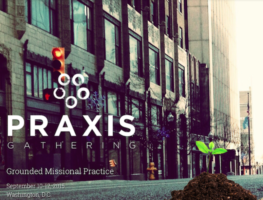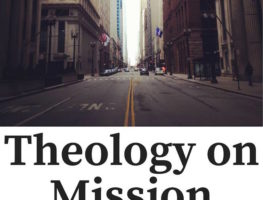 You can stop reading this post if you think I am going to review Mark and Grace Driscoll’s book Real Marriage. I have a much more boring post in mind.
You can stop reading this post if you think I am going to review Mark and Grace Driscoll’s book Real Marriage. I have a much more boring post in mind.
Driscoll’s Real Marriage book is to the NeoReformed what Rob Bell’s Love Wins was to the Emerging church last year. They both stir up humongous sales with a media frenzy and in the process reveal the “cracking” (to use Scot McKnight’s word) taking place within the mainline N. American protestant evangelical church. As with Bell’s book, so also with Driscoll’s book, each brouhaha (to use Bill Kinnon’s word) reveals something of the theological pulse driving their respective movements.
This time the Driscoll fiasco revolves an interview done by the Driscoll’s about their book with Justin Brierley on the British radio program Unbelievable (here’s the podcast of the entire hour-long interview with Mark Driscoll). There was a “dust-up” on the interview. Driscoll was offended. He then calls it “the most disrespectful, adversarial, and subjective” interview he’s ever had. And now it’s all over the internet driving up sales of his (and his wife’s) new book.
My take (and the angle I want to pursue) on the interview is that Driscoll’s “act” simply doesn’t translate well into the very post-Christendom context of Britian. In fact the whole encounter reveals the Christendon assumptions that drive his theology. There are three missional “bugaboos” that he clashes with Brierley on. Each bugaboo represents a theological position we Missionals fear/resist because of the way these things work against mission. In this interview, these bugaboos are a.) Driscoll’s singular obsession with penal substitutionary atonement, b.) his commitment to hierarchical male authority in the church, and c.) his blind belief in the importance of preaching/successful preacher to the church’s identity. These bugaboos represent the Christendom assumptions behind Driscoll’s theology and way he operates. Yet I think we can make a case for interpreting Driscoll as a symptom of the wider Neo-Reformed theological movement. So I think this episode reveals more than just Driscoll’s Christendom theology and mode of operation. I think it speaks to why the current Neo-Reformed revival and its theology will have a hard time leading missional–incarnational-externally driven church. So I put this theological psychoanalysis to the test before all my neo-Reformed friends. Let’s converse. Here goes!
(FYI: I’m riffing off of the account of the interview here and here, Driscoll’s response to the interview here, and Justin’s response to Driscoll as reported here).
1.) The Focus on the Substitionary Atonement. Towards the end of the interview, Driscoll asks Brierley if he believes in the penal substitutionary atonement. When Brierley affirms it as one of many ways to view the cross, Driscoll suggests he’s being cowardly about it. Driscoll then insists on singular commitment to penal substitutionary atonement is essential to the success of the gospel.
To me this speaks to the singular focus on the penal subtitutionary atonement that is central in many parts of the Neo-Reformed matrix regardless of contextual considerations. Am I right? Driscoll is blind to contextual considerations concerning salvation. In other words, the atonement is many faceted (read McKnights Community of Atonement for example). One size does not fit all. It could be argued that penal substititionary atonement makes the most sense in Christendom, amidst a culture shaped under Medieval Catholicism, it’s theology and penitential system (Driscoll grew up Catholic). Moral guilt, you could say, was (and is) the singular Christendom condition into which Reformed theology was born. It is not however as universal in the West as it once was. If we insist on being locked into this one view of the atonement, we will in essence be narrowing our context for mission.
The atonement is wider, bigger and more multitudinous than substitionary theory. And the hurts and pains of the world we are engaging cannot be put fit into this one theory. I believe in the substitionary theory of the atonement. But it is limited. The work that God is doing in the world includes reconciliation, healing, restoration, justice, and the victory and authority of Christ over Satan, evil, sin and death. It is in short God at work through Christ making all things right. A narrow focus on substitionary atonement disables the church from engaging the world outside Western Christendom culture. It discounts the manifold ways God in Christ has come to set the whole world right. Mark Driscoll can’t understand this. And so when he enters a post-Christendom context he gets frustrated.
Does not Drsicoll’s frustration then reveal the atonement myopia at the heart of the Neo-Reformed movement. Does it not reveal the weakness inherent in Neo-Reformed theology for those of us minsistering in post Christendom contexts (like Brierley’s Britian)? Does not his whole fiasco reveal how the singular focus on subtititionary atonement hinders missional engagement? Yes? no?
2.) The View that Authority is Hierarchical. Towards the end of the interview the issue of women pastors came up. It caused a bit of a flare-up in Driscoll’s intensity. Driscoll ends up suggesting that the reason why more people did not show up at Brierley’s church was because of a woman in leadership. To me, this has been a subtle persistent theme within Neo-Reformed ecclesiology: that men should be over women in authority in the church. Now it explodes on a radio interview in the UK. This I suggest is a Neo-Reformed habit learned and sustained in Christendom.
Authority in Christendom is viewed in hierarchical terms. Hierarchical patterns of leadership exist readily in established church systems where you have Christianized people who are already conditioned to respect clergy authority, where things can get done, goods and services distributed, decisions made, disputes arbitrated more efficiently among Christians who already submit. It is because of these ingrained habits of hierarchy that most Neo-Reformed views of church authority have struggles with women in authority over men (OK this is at least one of the reasons). Take hierarchy out of the authority question and it becomes much harder to interpret Scripture in a way that excludes women from leadership in the church.
In the post-Christendom world, authority is flattened in the church and pushed outward (Read this post for more info). Positional authority of anyone over someone else is not the way things work in the Kingdom (read Mark 10:42). Instead we work alongside each other out of our giftedness in the communities appreciating one another gifts and mutually submitting one to another in each one’s gifts (read Eph 4, Rom 12:3-8). The authority lies in one’s recognized gift. The idea that women are over men is as unthinkable as the idea that men are over women.
Flattened authority structures push leadership out amidst the organic work of ministry in context. Hierarchy pushes church ministry inward and upward for approval. Hierarchical authority inhibits dispersed missional engagement. Its structures will miss with people who submit to authority only as encountered via authentic relational engagement. Driscoll seems blind to these issues. He’s absolutely frustrated with Brierley’s inability to be impressed with the importance of top down male leadership. My question is: are these assumptions part of the larger Neo-Reformed movement as a whole and does this mean that the Neo-Reformed will always be inhibited somewhat from true missional engagement? (Can I say “just asking?”). It will always be a movement prone to attracting Christianized people who are already habituated to submit to a pre-established hierarchical (male) authority.
3.) The assumption that “success” is best measured by the number of people who show up to hear a male preacher preach. When Mark Driscoll finds out that Justin Brierley’s wife is a pastor and is questioned on the validity of a wife whose husband supports his wife’s leadership, Mark asks about the size and growth of his wife’s church. He says among other things “You look at your results and you look at my results and look at the variable that is the most obvious.” In other words I have thousands in my church, and you have a few hundred. That proves female leadership is inferior.
To me this is more than blind Driscollian machismo. This reveals something deeper in the Neo-Reformed ethos. There is a tendency in the Neo-Reformed movement to put a large emphasis on the gathering to hear preaching. I believe in preaching! But I see its function differently in the mission of the church. For the Neo-Reformed – correct me if I am wrong – there is a confidence that non-Christian people will still come to church to hear a good sermon. There is therefore a default tendency in Neo-Reformed churches to see success in terms of the numbers of people gathering on Sunday to hear a male preacher preach. This is a missional bugaboo. Success in mission will not always look like big numbers listening to a preacher (has Driscoll ever heard of Fresh Expressions in UK?). I see preaching as formational for a missional people, not a place where mission actually takes place (although I am uncomfortable with making that split). As a result, though often unintentional, the Neo-Reformed movement often devolves into a male led preacher attracting already existing Christians to come hear a good sermon. It thereby mistrains the congregation to think this is what church and mission is all about. That’s perhaps an over-characterization. But is there any truth to it?
Again, I think Driscoll’s question about the size of his wife’s congregation is more than a slip of the Driscollian machismo, I think it reveals something at the heart of the Neo-Reformed movement that will hinder it in the formation of congregations for mission. What say you?
In Conclusion
I see in the Mark Driscoll dust-up with Justin Brierley a revealing of some of the Christendom habits deep within the Neo-Reformed movement although often covered over by the many good things they do. The fact that Mark Driscoll’s flare-up happens in the UK – a very post Christendom place – only reinforces my case.
Some have said in response, that Mark Driscoll’s church is in Seattle, the most post-Christendom city in the US. But here, in this post, he says boldly admits going to Canada or the UK is much harder to do ministry than even in Seattle. He states “You are in a cultural context that is more non-Christian, and even anti-Christian, than even the most liberal cities in the United States. I’ve taught across Scotland, Ireland, and England. Each one is more difficult to reach than my hometown of Seattle, which is one of the historically least-churched and most secular-minded cities in America. I’ve said for years that Britain and Canada are more secular and difficult than the United States.” He basically admits that he himself with his particular approach to ministry would have difficulty succeeding in his own approach to ministry. Does this then not reveal what I am saying here? Driscoll is largely dependent upon the harvesting of already Christianized populations in Seattle area (what’s left of them)? Is this then why he then goes with video churches to go capture other such populations elsewhere? Does this then reveal some things that my Neo-Reformed brothers have to examine about their own theological modus operandi? I genuinely ask these questions for the furtherance of God’s Mission in our times.
It may seem unfair to stigmatize the entire Neo-Reformed movement with the likes of a Mark Driscoll temper flare-up. But I’ve learned that these kind of escapades are the best places to look at the cultural forces at work in theology and poitics. For myself, Mark Driscoll is an irruption of sorts on the skin of the Neo-Reformed movement. His flare-up, if closely examined, can reveal some of the theology at work and the forces behind these theological allegiances. How other leaders in the movement respond to him, like Tim Challies, Justin Taylor, Kevin DeYoung, Tim Keller, Collin Hansen, James McDonald, will reveal perhaps even more. Is Mark Driscoll just an outlier for the Neo-Reformed movement or is he the truth that lies at its core?







Missio Alliance Comment Policy
The Missio Alliance Writing Collectives exist as a ministry of writing to resource theological practitioners for mission. From our Leading Voices to our regular Writing Team and those invited to publish with us as Community Voices, we are creating a space for thoughtful engagement of critical issues and questions facing the North American Church in God’s mission. This sort of thoughtful engagement is something that we seek to engender not only in our publishing, but in conversations that unfold as a result in the comment section of our articles.
Unfortunately, because of the relational distance introduced by online communication, “thoughtful engagement” and “comment sections” seldom go hand in hand. At the same time, censorship of comments by those who disagree with points made by authors, whose anger or limited perspective taints their words, or who simply feel the need to express their own opinion on a topic without any meaningful engagement with the article or comment in question can mask an important window into the true state of Christian discourse. As such, Missio Alliance sets forth the following suggestions for those who wish to engage in conversation around our writing:
1. Seek to understand the author’s intent.
If you disagree with something the an author said, consider framing your response as, “I hear you as saying _________. Am I understanding you correctly? If so, here’s why I disagree. _____________.
2. Seek to make your own voice heard.
We deeply desire and value the voice and perspective of our readers. However you may react to an article we publish or a fellow commenter, we encourage you to set forth that reaction is the most constructive way possible. Use your voice and perspective to move conversation forward rather than shut it down.
3. Share your story.
One of our favorite tenants is that “an enemy is someone whose story we haven’t heard.” Very often disagreements and rants are the result of people talking past rather than to one another. Everyone’s perspective is intimately bound up with their own stories – their contexts and experiences. We encourage you to couch your comments in whatever aspect of your own story might help others understand where you are coming from.
In view of those suggestions for shaping conversation on our site and in an effort to curate a hospitable space of open conversation, Missio Alliance may delete comments and/or ban users who show no regard for constructive engagement, especially those whose comments are easily construed as trolling, threatening, or abusive.